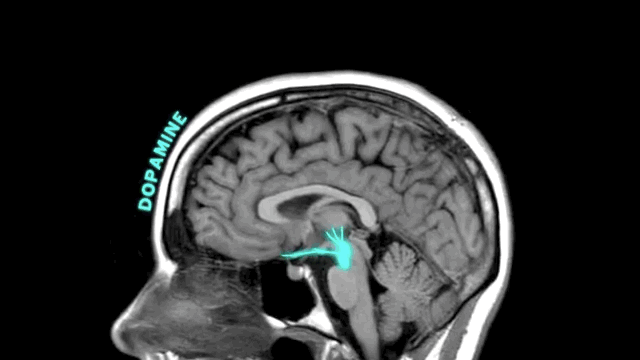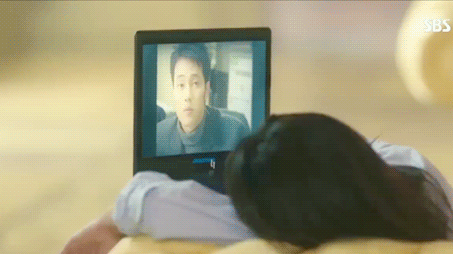It is an undeniable fact that people nowadays are spending most of their time facing a digital screen in order to watch their favorite TV shows.
Thanks to various streaming platforms, we are granted access to several hundred show options that we can watch in one sitting either on our laptops, smartphones, or television sets.
And as much as we enjoy binge-watching our favorite TV series, did you know that it can actually have a serious effect on your body and brain?
1.) Your brain releases dopamine

The animation shows how the brain produces dopamine and other neurotransmitters. Courtesy of: General Electric on GIPHY
According to a clinical psychologist, Dr. Renee Carr, when engaged in an enjoyable activity such as binge-watching a TV series, the brain produces dopamine. This chemical gives the body a natural, internal reward of pleasure that reinforces continued engagement in this activity.
Meaning, your addiction to a certain TV show is actually your body’s addiction to dopamine.
2.) It can affect your spine

Man slouches while watching TV in a living room. Photo courtesy: Picfair
While binging, many people slump into their chairs to enjoy a more comfortable and relaxed position when watching TV. The problem is that it causes the spines to go into a “C-shape.”
If kept in this shape for too long, the spine can become cramped, muscles begin to ache, and our organs can be squashed.
3.) It affects our sleep

Shim-Cheong (Jun Ji-Hyun) binge-watching a drama series. Courtesy of: SBS (Legend of the Blue Sea)
Research shows that binge-watching impacts the way our body produces melatonin, a key hormone involved in getting a good night’s sleep.
Therefore, the unnatural light emanating from laptops, mobile screens, and televisions throws our melatonin levels out of balance drastically. This is what makes us feel even more restless and fatigued with each passing day.
4.) It can affect the lungs

Man holding his chest. Photo Courtesy: Dreamstime
Studies show that sitting for long periods of time shrinks our lung capacity by a third. This means that binge-watching while sitting results in your lungs getting less oxygen which leads to a decrease in mental focus.
5.) Ending a binge-watch can lead to withdrawal symptoms

Do Min Joon (Kim So Hyun) crying over a heartbreak. Courtesy of: My Love from the Star (SBS)
You’ve likely experienced this when you’ve finished a TV series or even a book series. When you spend a large amount of time immersed in characters’ lives, you bond with them like you would someone in real life.
When that storyline ends, our brains can go into a sort of depressive state as we mourn the loss of the characters that we had dedicated hours, days, or even weeks to.
This feeling of loss is similar to a break up with a romantic partner. /bmjo


